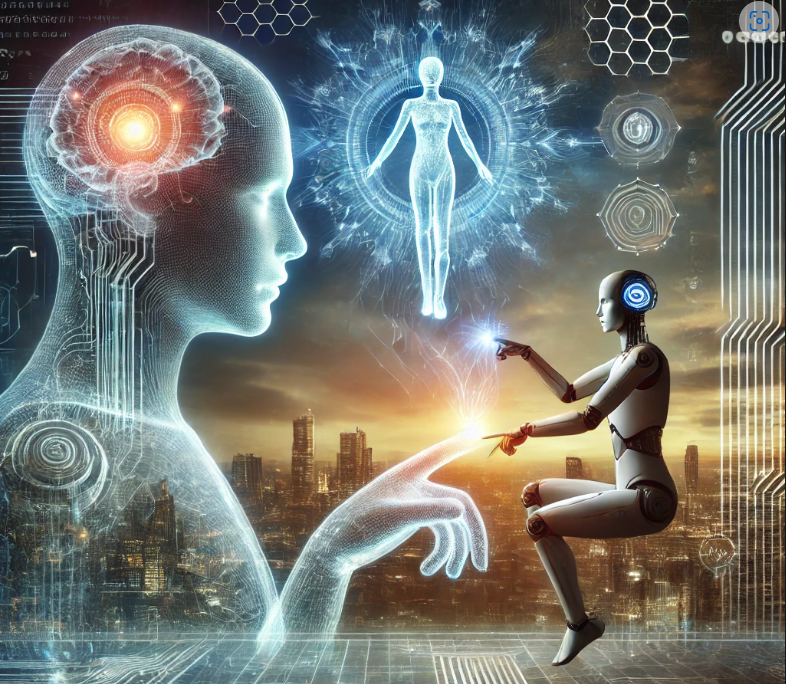The Future of Man-Machine Synergy: How AI is Redefining Human Potential

In the grand timeline of human progress, the relationship between man and machine has always been a defining factor. From the Industrial Revolution’s steam engines to the digital era’s computers, our creations have consistently elevated our capabilities. Now, with the rapid onset of artificial intelligence, we are entering an era where humans and machines will no longer be separate entities but partners in innovation, creativity, and decision-making.
The Evolution of Synergy
Historically, machines have been tools—extensions of human intent designed to execute tasks with greater speed, precision, and efficiency. But AI is changing this paradigm. No longer just passive instruments, machines are evolving into proactive collaborators, capable of learning, reasoning, and even making independent decisions.
Take AI-driven medical diagnostics, for example. Rather than replacing doctors, AI-powered systems augment their expertise by analyzing vast amounts of patient data, identifying patterns invisible to the human eye, and providing insights that help physicians make better decisions. This fusion of human intuition and machine precision is the hallmark of next-generation synergy.
The Cognitive Collaboration Era
AI is not just about automation—it is about augmentation. We are moving towards an era of cognitive collaboration, where AI enhances human intelligence rather than replacing it. In creative fields, AI tools are revolutionizing art, music, and literature. Algorithms can compose symphonies, assist in screenplay writing, and even generate realistic digital paintings. But rather than diminishing human creativity, AI expands its boundaries by acting as an idea catalyst and execution accelerator.
Similarly, in business and decision-making, AI-driven insights are empowering leaders with unprecedented analytical depth. Enterprises now use AI to predict market trends, optimize supply chains, and personalize customer experiences—all while humans focus on strategy, ethics, and big-picture thinking.
The Ethical & Existential Questions
As AI grows more sophisticated, ethical dilemmas arise. If machines can think, what rights do they deserve? If they can outperform humans in certain intellectual tasks, how do we ensure employment security? The concept of ‘man-machine synergy’ must also address these critical concerns, ensuring that AI remains a force for empowerment rather than displacement.
Furthermore, AI raises existential questions about what it means to be human. If AI can compose poetry, cure diseases, and create works of art, does human uniqueness lose significance? The answer lies in perspective: AI may replicate certain abilities, but human consciousness—our emotions, values, and ethical considerations—remains unparalleled.
The Road Ahead
The future of man-machine synergy will not be about domination or replacement but about co-evolution. To fully unlock AI’s potential, humans must embrace its capabilities while maintaining control over its ethical trajectory. Governments, tech companies, and society at large must collaborate to create regulations that ensure AI’s benefits are distributed equitably and responsibly.
Ultimately, AI is not here to take our place; it is here to elevate our potential. The synergy of human ingenuity and machine intelligence will redefine the limits of what we can achieve, ushering in an era of unprecedented progress. The future isn’t about man versus machine—it’s about man and machine, together.


